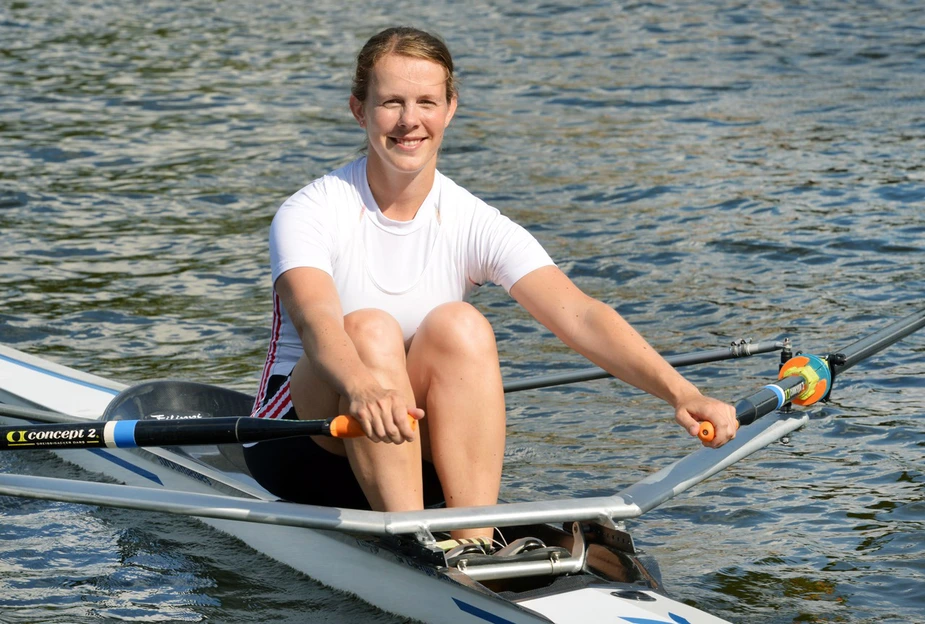Satellites and Watersports
Sophie Paul is a communications technology researcher and coaches a young rowing team
“I’m rather on water than on land.” It seems like this sentence is Sophie Paul’s article of faith, explaining why she moved from Bohnsdorf, where she grew up, to nearby Köpenick. It is testament to the amphibious lifestyle of the almost 30-year-old electrical engineer.
She spends most of her weekdays at Ferdinand-Braun-Institute, the Leibniz-Institut für Höchstfrequenztechnik (FBH), on Gustav-Kirchhoff-Strasse, where she works on improving the performance and reducing energy demand of satellite communication as an associate researcher. She spends her free time in the water-rich area around Köpenick. She has been training the young competitive rowing teams of local club “Energie Berlin” four times a week for five years. Reminiscing over countless training sessions in the past, she says: “The Müggelsee is at its most beautiful early in the morning.”
After graduating from high school, the decision to go into electrical engineering was the result of an open day at the Technical University Berlin. A visit the lighting engineering lab should become a formative experience: “That’s when it hit me how many things in our lives are electronic – most of what we use every day.”
Nevertheless, she was into mathematics, physics and computers as a high-school student and probably would have found happiness in a different job. Meteorology, geography, urban planning: “I was interested in many things.”
At the FBH, where she’s been working since May 2016, the young scientist is examining how to boost satellite signals for her PhD. Transmitting information back to earth from space is not a fundamental challenge anymore. However: “The amount of data is growing. At the same time, our aim is to reduce energy consumption.” Adlershof is one of two places in Germany, where research like this is done outside of universities.
Contrary to electrical engineering, Sophie Paul’s commitment to rowing was passed on to here, which led to a 10-year-tenure in the German national team and a world cup. Her grandmother from Halle on her mother’s side was a GDR rowing champion. Her father’s parents met at “Energie”, her rowing club. When Sophie and her brother turned 11, and 12 respectively, reaching “minimum rowing age”, as she puts it, their course was set. “I wasn’t into sports much before that, but after a short while I got really into it.”
Her enthusiasm resulted in a competitive sporting career that took her to competitions all over the world, including to Portugal, Poland, Slovenia, Athens and Kazan in Russia. The most remote rowing trip was in New Zealand in 2010. However, she accomplished her biggest success in domestic waters. She won gold in a double scull together with Tina Manker during the U-23 rowing world cup in Brandenburg an der Havel in 2008.
Now she coaches two dozen children and teenagers and enjoys watching them grow athletically. Some of them remind her of her own ambition back in the day. But ambition is not the highest value of her club: “Honestly, the most important thing for us is that they do sports instead of sitting in front of the computer at home,” she says.
By Winfried Dolderer for Adlershof Journal
